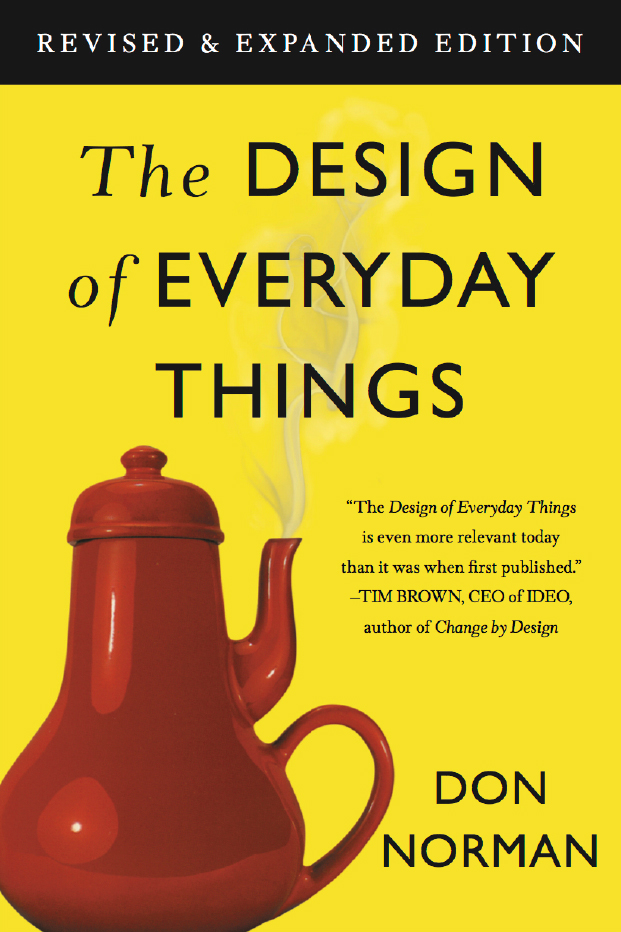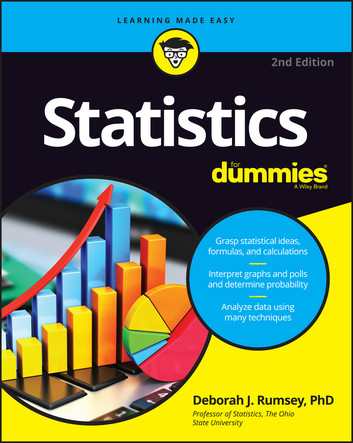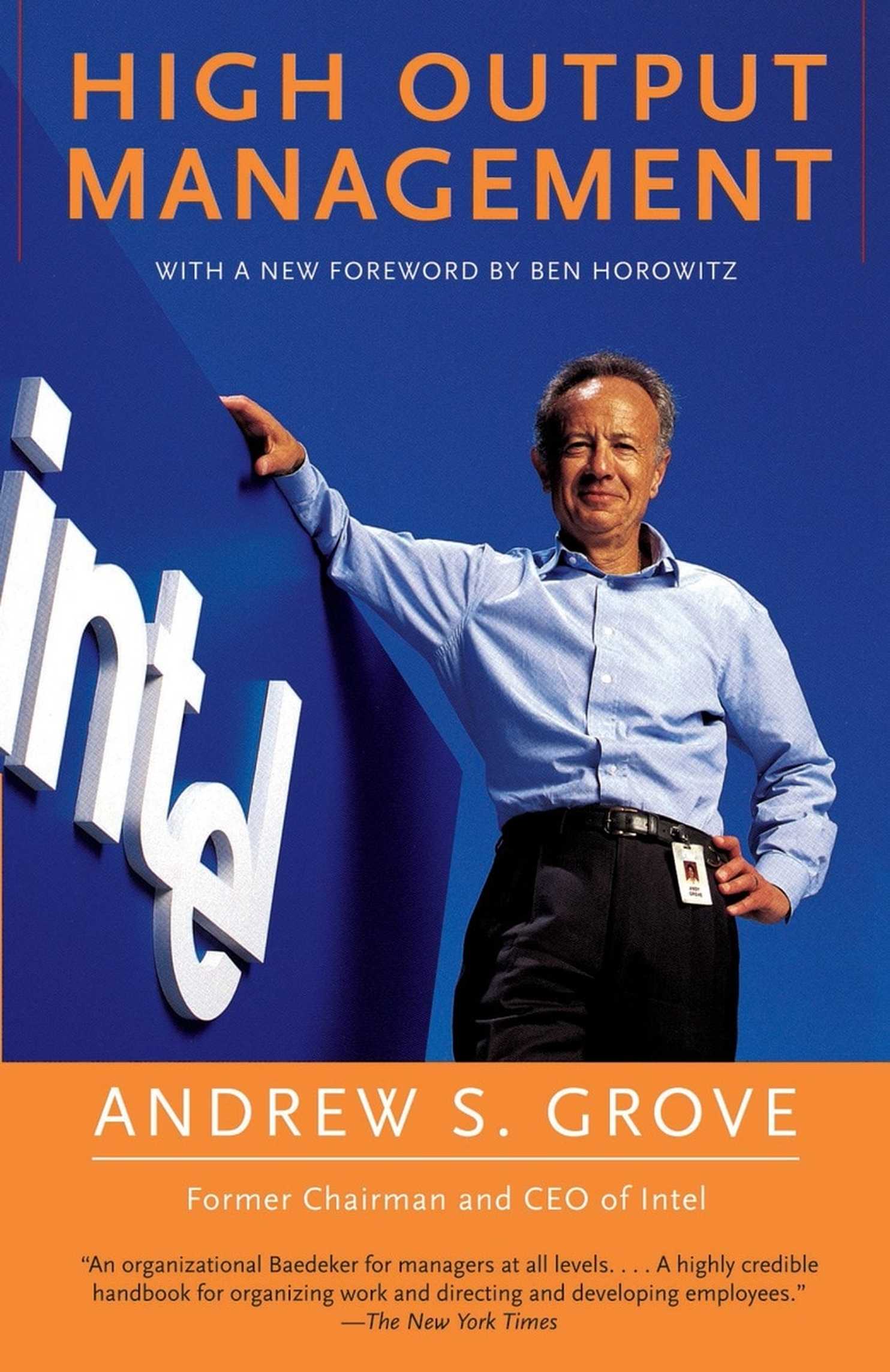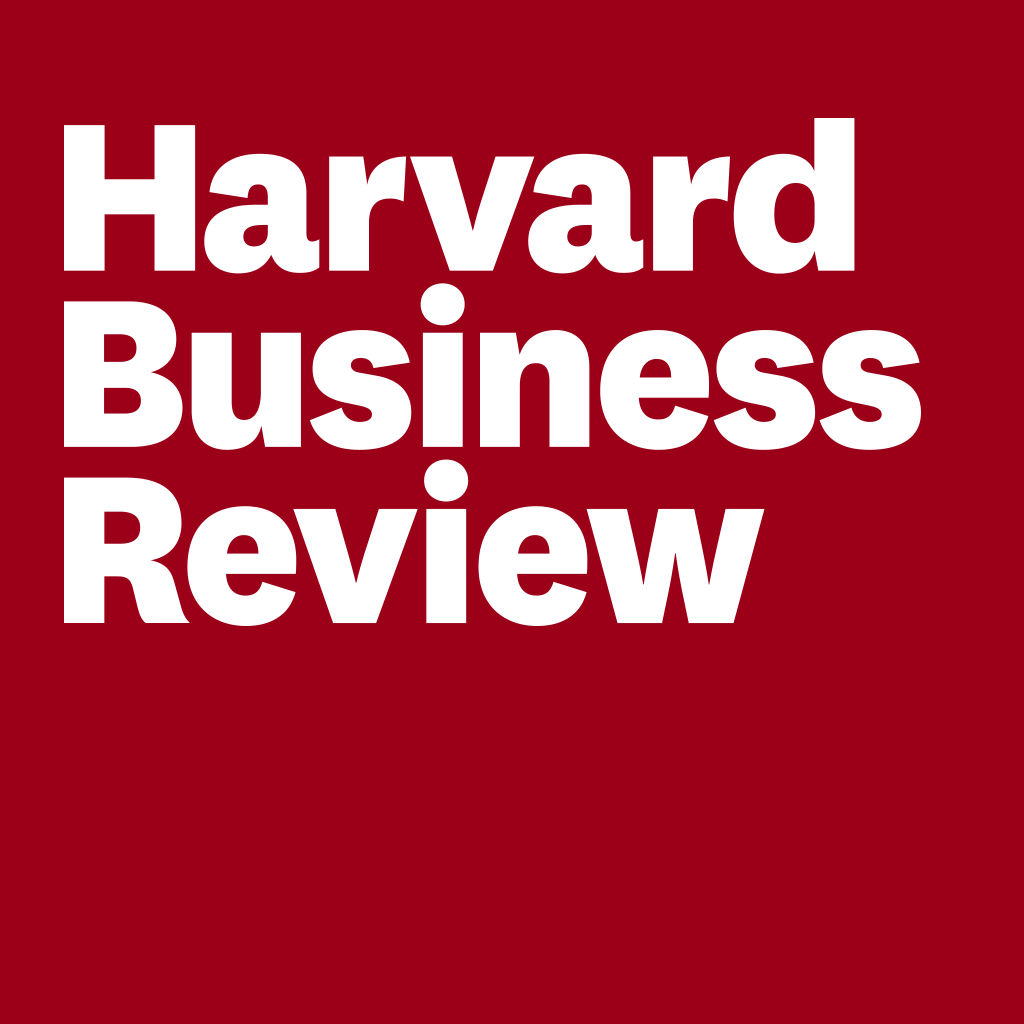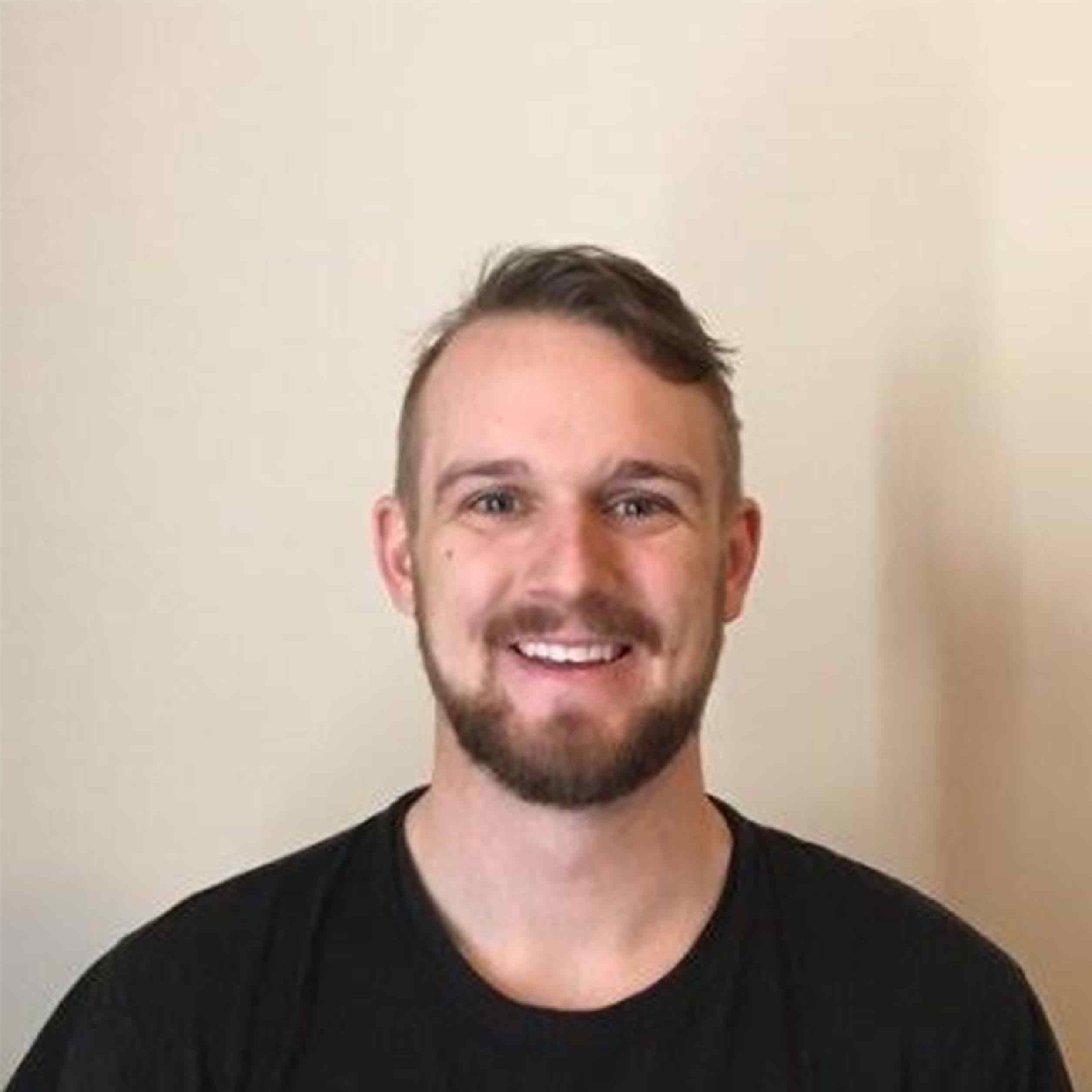
No Idea is Worthwhile on a Whiteboard
Michael: My name is Michael Sparks, I'm a product manager at XO Group.
Suzanne: Now XO group, y'all are a big company here I mean I kinda came through the space, I saw desks and desks and desks. But I don't think most of our listeners would know who is XO Group.
Michael: Yeah so at a high level XO is really focused on helping people navigate and enjoy life's biggest moments. So these are things like getting married, having a baby, buying a home and we kind of do that through a few different brands and products.
The Knot is our kind of like flagship brand, it's what we're most well known for, it's what I work on and that's our wedding planning brand and product that kind of helps people try to plan their perfect wedding.
Suzanne: Now has The Knot been around for a long time?
Michael: The Knot has actually been around for over 20 years. Our founders wanted to get married and wanted to have like their own unique rooftop wedding which apparently wasn't actually like a thing back then. And so they wanted to basically start this company and started it way back in ‘97 kind of like in these chat rooms. And it actually started as a media company as like a way to give engaged couples like advice on how to go through their wedding planning.
Suzanne: Amazing, 20 years. Now you look like a young guy, I don't think you've been here at The Knot for 20 years, how did you get into product management? When did you get into product management?
Michael: Yeah, I got into product management right out of college, this was about four or five years ago and it was kind of almost an accident. When I graduated I moved to San Francisco just with some friends without a job kind of as like a thing to do basically, and started working at this start up as the CEO's assistant and I was like helping him with email and scheduling things and like I helped with his like online dating profile for a little bit believe it or not. And kind of as the company grew it was really just a matter of like trying to fit in wherever the company needed help. And so I got into this role that was really more of like project management of like shepherding through different features through development.
And then we hired this head of product one day who had previously been a head of products at Netflix and some other places. And so this is when I really kind of like considered myself as being like into product at this point was, this guy came in and was like hey what you guys are doing is project management and what product really is is about focusing on the customer and trying to like figure out what their deepest problems are. And figuring out how to solve those in a unique way for your company. And so that's really kind of like framed the way that I think about what being a project manager is and what being product is. Which is at its heart really like focusing on the customers and kind of solving problems for them.
Suzanne: I love that you bring up that distinction between product and project because as I'm sure you know those terms get thrown around interchangeably a lot. And I like that this fellow kind of came in and offered a clear distinction. I'm wondering how you would delineate those, so if somebody were sitting across from you unclear about what is project management, what is product management in terms of the day to day or the rhythm of that.
Michael: Well I think project management at its heart is really about the kind of five foot view of like you’re really on the ground and like pushing things through day to day and making sure that like the smallest details get done. Product certainly has an element of that, so it does have that kind of like five, fifteen foot view of making sure that whatever feature that you're trying to build like gets broken down and goes to the engineers correctly. Like engineers are working on each task and that goes through and it gets QA'd and all that stuff.
That other element of it is that you also have to take the like 30,000 foot view and look at the larger trends. And so that's kind of like the two different things that I'm doing on any given day is like where are we trying to go as a company right. Like what's our strategy what's our vision, what's the plan to get there and how does my team fit into that. Taking into account like all the larger macro trends going on in the world right. And then how does that translate into like a very literal level of what are our designs in the app gonna look like? And then how are we gonna break those designs down into a way that the engineers are gonna look like. And then how do we make sure that we ship those on time. And then when we ship them how do we get feedback from customer support and analytics. And so it's kind of like trying to balance those, the 15 foot view and the kind of 15,000 foot view, on any given day.
Suzanne: Yeah and I think balance it's an excellent choice of words because that is for me the primary distinction right. Product management is strategic and project management is tactical.
Michael: Yeah.
Suzanne: And it's further complicated by the fact that a lot of the times as product managers we may still have to act in the capacity of project manager. What do you do to help you not get kind of too stuck in one resolution or the other?
Michael: It's really hard to remember to like take a step back and remember that you have to do both. And I think there's this phrase that I always think about in my head which is that no idea is worthwhile on a whiteboard. Someone said that to me that I'm stealing it from and it's really stuck with me through the years that like it's so important to have a vision of where you're gonna go and like a plan to get there but doing is better than thinking right? Like you have to take that plan and put it onto paper or else you're not gonna actually have results at the end of the day.
And so you have to be able to get the thing out and push it through to get it released. And then you also have to have the discipline to take a step back and ask yourself the really hard questions about like where are we going and how are we gonna get there?
Suzanne: I'm laughing as you're saying that because I'm thinking you know one of the things that I teach when I do like corporate training in particular we talk about empathy which of course is a big part of the product manager role. But we frame it through the lens of using empathy maps even to better understand the folks on your own team right. So how do I as a project manager better understand my developer better understand my designer and as you know from empathy maps one of those like what would, the kinds of things that this person says.
I bet if I went around and queried everyone else on their empathy maps your quote, nothing ...
Michael: No idea is worthwhile on a whiteboard.
Suzanne: Everyone would unanimously agree that's something Michael says.
Michael: Yeah.
Suzanne: I love it I love it. Have you always been here in New York City?
Michael: I have not actually I started in San Francisco and I was there for a couple years doing the transition from project to product. And then I moved to New York a couple of years ago actually.
Suzanne: You're just a masochist you love the cold you're like oh the weather is too balmy here. Actually, the weather is kinda terrible in San Francisco as well.
Michael: I know it's like the same all year round, and in New York at least you get the seasons. I actually came here and it's funny because now I work at a wedding planning company but I came here because my fiance was living here at the time. And she's from here originally, and so we kind of had been dating long distance and wanted to close the gap.
Suzanne: All right here you are in New York.
Michael: Yeah.
Suzanne: How in your experience is the product community different in this city than being up in the bay which kind of everybody thinks about the bay as being the nucleus of product?
Michael: It's just a lot more established in the bay area and silicon valley. Product is like people know what that is they know what that function does. There's a long history of it and it's like very established as like a role and as a community out there. And in New York the product role is kind of amorphous, right it's general and it can be hard to describe. So there's just not that long history of technology companies in New York that have really had a need for product managers. And so I think the biggest difference that I've seen is just that New York lacks that community and lacks the established understanding of what the product role is.
And I know that that's something that we've been doing here at XO and that Brent has been doing a lot of. We just hosted a conference called New York Product Conference where there were a couple hundred product managers coming in. We had speakers from like Jet.com and some other areas and trying to just like, build that community of what product is and educating people on what it does and why it's so important and how it can be impactful.
Suzanne: You're mentioning Brent and for the benefit of our listeners you're talking about Brent Tworetzky, he's your VP of product at XO group. And I actually sat down with him, we met at the industry conference in Cleveland this past year and really enjoyed his talk, had a really great conversation with him after, about you know just a lot of the ideas that he has that he is contributing frankly to kinda the product management framework or ways of thinking.
And one of the things I recall being struck by was his approach to sort of structuring product teams. And kind of fostering a culture of education. One of things that's unique about XO Group is you have a lot of product managers. Right, you're one but there are many. So can you speak a little bit to your experience being on the ground working with Brent?
Michael: Yeah so Brent really puts a focus on, and part of the reason I love working here and really enjoy, and think that Brent is really great is that we're really focused on the customer right, and the customers problems. So the way that we've organized the teams are around those customer problems right. So you pick a particular problem, I work on what we call guest communications so anytime that like an engaged couple needs to talk with their guests and invite them to the wedding, find out that they're coming, find out what meal they want, whatever.
And so we have, we structure a squad around this problem which consists of a product manager, a designer and then you know five or six engineers. And we really are empowered to be the smartest people in the room on this particular product right. So you're kind of given the autonomy to do that.
And then we have a lot of different avenues that we try to educate everyone else in the organization about what it means for a squad to have autonomy and then for the squad to share our learnings with everyone right. So we have like an internal product blog that everyone reads, there's like hundreds of people who read it every week that we share our latest learnings from A/B test or from customer interviews or whatever and it's a chance to you know kind of have a live discussion on there about feedback about what worked well for this and what got better. So it's this very kind of like open forum for feedback.
The other major thing that we do to kind of up-level everyone constantly and make sure that we all speak the same language and have the same vocabulary and are like on the same page is we have what's called product school. So we do product school, it's literally a class right you literally, we bring someone in either from inside the organization or from outside and they teach us on a particular topic.
So we had one a few weeks ago that was on user stories, we've had one that was on how to build and MVP that we actually call MVEs, minimum viable experiments here, so that, that's like a shared language that's particular to XO. And there's just all kinds of topics that we kind of cover through these different product school classes.
Suzanne: Yeah I love that because you know we talk a lot in Agile of course about shared understanding. And I think it's easy to put a poster up on the wall and say shared understanding and much harder to actually live into what that means. And it's funny this idea minimum viable experiments but of course this term minimum viable product has been misused and misrepresented and distorted and contorted for different benefits that, I think in part that's part of what we do here on this show is we're trying to introduce some patterns of continuity around concepts and then also shine a light on how these things can be understood differently.
What is this notion of minimum viable experiment?
Michael: Yeah it's funny that you mention that like MVP is totally misunderstood and totally distorted. And our idea of minimum viable experiment actually came out of this problem where everyone was going around talking about, oh I built an MVP and we did this from our MVP but nobody really knew what it meant.
And we have these kind of like biannual product gatherings here at the, at XO where all of our different product managers get together and talk about how the organization is going and this was a topic that we brought up. And we were like hey nobody knows what this means. And so it came up and then as a company we said okay we're gonna tackle this. And so a group of people got together and came up with this idea of like, and taught a product class on this idea of minimum viable experiment.
And the basic idea is that you have some hypothesis that you want to learn about, and so if you do an MVP on it what happens a lot of time I think is that people build an MVP and they ship it and then they don't actually do anything else with it right. Or you try to like build out some larger feature and then you've scoped it totally wrong and so like a week before the release date you just cut it down and you justify that by saying, oh it's just an MVP it's fine we'll come back to it later.
So we started with this idea of minimum viable experiment which is that it's the least amount of work to do to prove or disprove a hypothesis. And so it's really this idea that you're gonna do this small amount of work to prove the hypothesis and then you're gonna go on to your next hypothesis and do the least amount of work there. So you're kind of constantly building that out. And you probably start with a list of like five or six hypotheses.
So that's kind of the general idea of it is that it's meant to invoke this idea of like you're not gonna just do this once and then leave it. It's not about de-scoping right before the release date it's about starting with that really kind of essential nugget of an idea and then building up until it's had a chance to succeed or fail.
Suzanne: Yeah I think it's a great adjustment and I would advocate to that for our listeners as well because I do believe that is the intention behind minimum viable product, but where it becomes complicated to think about is, so I have a product well, minimum viable feature, well iteration on that product so this idea of baking the word experiment into the terminology allows you to kinda always be thinking about releases in an experimental way. Which is of course at the heart of validated learning.
Michael: Yeah definitely and we, one of the things that we would sometimes get caught up on is well it's supposed to be and MVP so don't spend more than a week on it. And like you kinda get get lost in like what does minimal mean, how much time can you actually spend on this right, what does viable mean, and then like what's the product right? And so I think MVE really gets at all of those answers where it's like, however much work it takes to validate this hypothesis. And then you're gonna have to keep iterating on that. And so that's something that's actually worked pretty well for us.
Suzanne: I love this idea that you spoke about that the product teams are organized around customer problems instead of features or even specific product lines. And given that you shared already that you had a wedding and so you probably know a little bit about the problem of guest communication just from your own lived experience. How do you remember not to bias your work as a customer right?
Like I think a lot about when you're a product manager and you're not ultimately the target user of a product it's easy, it's almost necessary to keep the customer front and center because they really are your portal. But when you occupy that demographic right, then I can see the tendency would be to start making decisions for the customer kind of as the customer. How do you prevent yourself from falling into that pattern?
Michael: It's yeah it's so hard to realize that we are not our users. And so I think one thing that we do is we actually have a user research team here. And, so they're a great resource to have to always go back to and talk to. And they're constantly doing interviews and they usually do them live. So you can like listen in to them if you Google hang outs or whatever and we always just kind of have that setup so that you can go in there.
We have like a Slack channel where we're constantly feeding in user quotes that we've heard from interviews. Or feeding in customer support tickets so that you can kind of always hear from the customer.
One thing that we do do is I think it's really helpful to have these little, you might be realizing that I'm really big into like phrases and little phrases that people can just remember and recite to themselves. And when I was in San Francisco somebody would always refer to we're a bunch of Silicon Valley freaks. And so you've gotta get out of Silicon Valley and go to where your users are. And we kind of say the same thing here where we're a bunch of New York City freaks and we have to get out of this like New York City bubble that we live in, and go where our users are. Which is partly like always talking to your users right and having those user interviews.
And so but I think it's just like saying that phrase and like having that phrase that kind of rattles around in people's minds and that you can always go back to and remind ourselves that, oh we're not our users because of like we're kind of these New York City freaks that don't, it's just hard to get past your own biases in that respect.
Suzanne: Yeah I know I'm a big proponent of sound bites and I often times I'll write them down on post its and just stick them. Because you do sometimes need that reminder, that physical or you know cerebral reminder of switching gears. Otherwise as we spoke about before in another context it's just easy to kind of slip back into certain patterns of behavior right. We talked about it with strategy and execution and moving between those resolutions.
I know this is a misnomer but can you describe a typical, I'm putting that in air quotes right, a typical day or week in the life of a product manager here at XO group?
Michael: Yeah, so I guess the first thing is like what I try to get in in the morning is it's thinking about what are the highest leverage things that I can get done that day. And what are the two or three things that I do that are gonna be so much more important than everything else that I have to get those done.
A lot of times the real answer actually is like kind of that 15 foot view of pushing through the product. So I'll usually get in and we have offices in different time zones and actually we have an office in China that I work with pretty closely, we have some engineers over there. So I'll get in in the morning and respond to emails and messages from them and make sure that they have what they need to do a lot of the coding and make sure that the idea gets off the white board and into the user's hands. So it's a lot of that to start with.
And then I usually try to always kind of do a combination of checking metrics and analytics from the day before and looking for any patterns that I might see and then trying to square that with our customer support. So I mentioned we have a Slack channel where I can see all of those customer support messages. So I force myself to read those every single day. And it can be really hard because wedding planning is super emotional. This a very like difficult things that people are going through. It's the biggest event you've ever thrown, you've never done it before. And so I force myself to actually read those responses from people and try to square that with what we're seeing in the numbers in like what I'm working on.
And then once I try to like get through those kind of like tactical things of making sure the team is able to move forward with development then it goes back to the higher level things of like, okay are we set for designs right. So I sit right next to the designer and we just like are kind of going back and forth all day with ad hoc with what we're working on.
And then it's a lot of like higher level strategic discussions with stakeholders and trying to figure out what are we going to do over the next six months, twelve months, five years.
Suzanne: Right right, doesn't sound like there's a lot of time for Facebook in that whole itinerary that you, so you have to do that outside of work I guess.
Michael: Yeah I definitely never go on Facebook or Instagram while I'm here.
Suzanne: Good good I'm glad to hear it I'm glad to hear it. When I was waiting out front I noticed that The Knot has a magazine, looks like very high quality of, I thought it was a Vanity Fair for a second and then I was like oh this is a magazine so I thought it was a digital product. Did the magazine come first or did the magazine come later?
Michael: I think the magazine came first. And it kinda goes back to what we were talking about, about how old of a company it is. I guess maybe the website actually came first but for 20 years or so we were a media company right, and that's what we were really focused on. And it's only been in the last three to five years since Brent has come on that we've started transitioning to trying to become a technology company and a product company that is really focused on like a particular user problem rather than basically a media company and writing articles and stuff like that.
Suzanne: I did notice in the latest issue, the winter 2017 issue some little banner, cause I was like, ooh call to action, about the new all in one wedding planner app. Were you involved in that?
Michael: I wasn't really involved in that, it was kind of like a company wide effort so I had a hand in it here or there but I wasn't directly involved. The all in one wedding planner thing is really about kind of taking the products that we do have and integrating them really tightly so that they're all in this one seamless platform.
When you're a couple, a bride or a groom or whoever who is engaged you just think about wedding planning right. You just think about how do I like get to my wedding and have that perfect wedding. And you don't really think about the discreet tools that you have to use. You're not thinking about a guest list and a checklist and all these other things. And so there's really an effort for us to really bring everything together into one integrated platform.
And to also introduce some, solve some new problems that we had heard a lot from users, which was that I have a really difficult time articulating my style right. Obviously probably if you're a first time wedding planner you've never had a wedding right? And so you don't know what your style is, you don't know how to describe that you want a modern wedding with a little bit of rustic flair and you know whatever.
And so we built a style quiz to kind of help people articulate that and then it connects really well with all of our different products like our vendor marketplace where you can attach your style quiz and give the vendor that information about what kind of wedding you want to have. It kind of all connects throughout the whole suite of products.
Suzanne: So it's like a wedding planning wizard in a way. I'm sure that's a gross simplification but ...
Michael: No that's actually a really good, it's kind of an all in one wedding planner right, that does it for you.
Suzanne: Oh maybe then I should apply for a job here if I've already got the terminology right down. Minimum viable experiment, I can pitch the products, I'm just kidding.
Michael: You're halfway there.
Suzanne: I'm just kidding I got lots of work to do still. What Michael excites you the most about the PM role? Like you spoke a lot about the structure here and obviously Brent's direction, you've been in this role a few years you're finding your own identity, what is the thing that gets you going?
Michael: It's really that opportunity to kind of make things better for people. Right it's really the opportunity to use technology and design and kind of marry that, no pun intended I guess, with understanding human behavior and how we can make things better for people.
Like when I, when I was first talking to Brent about coming onboard here one of the things he really sold me on was, wedding planning is stressful. Right, but it's also the beginning of your kind of new journey in life together with your partner. And so you wanna be able to set a really solid foundation right? But if you're kind of like bickering over money and are you gonna invite aunt Louise and all these other things that's not a really good foundation right?
And one of the things that Brent sold me on was hey if we can help eliminate a lot of this stress we can actually help set a really solid foundation for being kind of like the relationship company right? And over time you could envision a world where we're actually helping lower the divorce rate in America.
Suzanne: Wow.
Michael: Which is this really like audacious kind of crazy goal to think about. But we spend a lot of time at work right? And so for me it's really important to do something that's impactful. And so I think it's really about focusing on people and how can you make others lives better and this is like the one small way that I feel like I can contribute to that.
Suzanne: Right, what is this, Brent spoke about consumer science. I've heard his perspective on it. We actually have an episode where we went kind of in detail but I'm curious to know how that concept is translated to you.
Michael: Yeah when I think of consumer science there's, I mean the way that it's usually articulated is like the quantitative and the qualitative right? And so it's like quantitative is your kind of like empirical data that you have right, what are your existing metrics. It's A/B testing which is, that's really like the big dog right? Is going out and running a test and getting quantitative answers and like being really certain that hey if we roll this thing out to everyone we know it's gonna work.
Actually a good example that was in the news recently that, I'm sure that everybody who is listening to this can relate to, is when Netflix moved to the thumbs up or thumbs down version. When they rolled that out to everyone they knew that that was gonna be a success and they knew that some people would gripe and grumble but that nobody would actually cancel their accounts over it. And they knew that because they had A/B tested it right, with thousands and thousands of people. So at that point they had kind of de-risked the decision up front. So that's like really the kind of like the big dog like what are people gonna actually do.
And then the other side of that is just the qualitative part is like talking to people trying to understand what's really difficult for them. What problems they're facing, how they've tried to solve those problems with like existing solutions and what worked about that and what didn't. And what we talk a lot about here at XO is like when is the right time to use each of these tools.
Cause I think people can kind of like, you can get into this world where you only do quantitative stuff or you only do qualitative stuff. And one or the other on their own isn't actually enough right? So you have to figure out okay like where am I in the product's life cycle and what tool is the right one to use to like take me to that next step.
Suzanne: Yeah yeah balance again it's always balancing the tensions in product management. I'm not, you know my position on tools as I've made known in many of our episodes is that they're great accelerators of process. But the tools unto themselves you know, for every tool there's five others that can do a similar type of thing.
I guess I'm curious to know, in the context of analytics which is really what we're talking about when we talk about being able to infer meaning from data we're talking about analytics, and did you have to get good at that through this particular role? Did you already have some experience or expertise in that coming in?
Michael: I mean I think it's definitely something that like I've had to learn over time in my product career. It's like the data is like your customers talking back to you right? So if you look at a particular conversion number what does that really tell you, right? And so you have to, I've had to learn to really like dig in and learn how to like pull threads. And if you see something interesting to ask more questions and to go after it.
And so you learn this kind of like more general idea of just like being skeptical. Right, and trying to pull threads and think about is there something interesting here that I can kind of dig into and learn a little bit more? And then you also I think which each role that I've been in, you just learn specifically about like what's unique to that company and the way that you have your analytics setup. And the way that you design products is gonna influence the data that you get back right? So you learn to ask very specific questions at each company about like whatever kind of data they're looking at.
Suzanne: We do a segment on this show called get the job learn the job love the job. And normally I ask guests what advice can you offer for product managers looking to break in. But what I'd like to ask you just to put you on the spot a little is maybe two parts about advice. So you speak about this tension of qualitative and quantitative and this idea of consumer science which you all subscribe to here at XO. So if I'm a new PM what advice would you offer to me for starting to get better with quantitative inquiry? And then same question re qualitative inquiry.
Michael: With quantitative inquiry the best advice I ever got on this, it sounds really simple, was to read Statistics for Dummies and learn how to do confidence intervals. And it sounds like kind of simple and funny but it really is cause if you have like a basic grasp of statistics then you can actually draw conclusions from the data, right? If you just look at a conversion rate by itself that doesn't actually tell you the full picture of like the health of your product and what's going on there.
And so if you can kind of like extrapolate that out of like are the changes that we're seeing in this conversion rate over time from day to day like are those normal? Is this indicative of some bigger trend that I really need to look into? And so it's like that kind of inquiry that I think if you can start to grasp can be really really helpful.
And the same thing with confidence intervals which is just when you have an A/B test right, there's some margin of error that you have to account for there. It's kind of the same thing when you hear like polls in politics where it's like within the margin of error. It's that same idea and so when you're presenting and A/B test like you have some certainty of which variant won, rather than looking at just what was the exact observed outcome in that experiment.
And that's actually something that I've seen people at a bunch of different companies do is they forget to do those confidence intervals and they think one particular experiment won, and then they roll it out and they didn't see the change that they expected. And so those are like two kind of different things that I've seen.
Suzanne: I think that's great I love practical accessible go to the store buy this book study hard. What about on the qualitative side? Because I think this is in my experience in a lot of ways harder. Because it comes down to communication skills, it comes down to intimacy building, you know you can't just go to a customer and say tell me your problems because a lot of the times they're not even super connected with the problems. They certainly don't usually know how to think in terms of solutions.
What have you done to kind of get better at qualitative inquiry that you would advise to somebody else at the beginning?
Michael: I think, so I read The Design of Everyday Things several years ago, and you know there are always these few things in your life that totally change your perspective on things. And reading that book I totally like drank the Kool-Aid on it. And I was like oh my God like, whenever you pull on a door that you should have pushed it's not your fault it's whoever designed the doors fault. And I totally bought in it. And I, so I think that for me just really shifted my perspective on things and made me realize that when people are struggling with things, struggling with doing something in your product it's often because of the way it's designed, right?
So if I'm trying to plan my wedding right. And I'm trying to find a venue that I want, I just went through this right, and there's a whole bunch of different venues in New York, but they all are priced differently, they have different packages some come with chairs some don't. It's very difficult to figure out like which one of those that you want. And so you have to come back to the idea that like it's the product that's not helping you solve this problem. And then on the other end of that product there's a person who is really really struggling with that.
So I think you know it's almost a little bit of a hard question to answer because once I had that perspective shift that it's really the designer's fault if something isn't really easy to use. Like it's really hard for me to see beyond that. So maybe that's the advice is to read the design of everyday things and try to like shift your perspective to really just always be living in the customer's shoes.
Suzanne: Yeah I mean it's an excellent book, I agree in fact we'll put it on our resources page even though you recommended it in a different context. And I think this notion of, there's an ego piece right? I speak to this a lot because designers are notoriously guilty for it. And we're all guilty for it in our own ways but, we become experts at what we do and then we lose touch with the fact that just because we're experts within a discipline doesn't mean we're expert at the problem or the challenge that the individual is facing.
So I think kind of what I heard you say on that is if people are struggling pay attention to where they're struggling and see that as an opportunity to make an adjustment in terms of what you're doing internally.
Michael: Yeah I actually I like the way that you said it a lot. Like yeah we're experts in designs but not necessarily an expert at like in that particular problem. And if you actually take that to the extreme like you might be an expert in design generally but you're not an expert in one single person's experience of a problem. And that's really all like the numbers are right, it’s an aggregation of a lot of different individuals right?
Suzanne: Well I'll tell you what Michael you've been giving us so many sound bites here for free you can have that sound bite and incorporate it into your portfolio, deal?
Michael: I'm gonna do that thank you.
Suzanne: What about hard lessons learned on the job? Either in your own experience or just where you've seen kind of other folks struggle. Because product management is a lot of fun but there's challenges as well.
Michael: Yeah the first thing that I've seen people really struggle with and kind of like forget when they're starting early in their career is not having a plan. Not having a strategy of how they wanna get to where they're gonna go. And so this kind of starts, you can actually think about this on a product level and on a career level right?
On a product level if you're trying to think about like what are the best features to build right? Well to build for what? Right and so it always goes back to what is our end goal here and what is the right strategy to get there? And I think it's really easy to forget about that and to go into that like kind of 15 foot view and always just be in the weeds and pushing through, and not actually step back and ask yourself, where are we going and is this the right place to go?
And I think that's also true with your career, right? Part of being a product manager is being strategic about the direction you take a company so why wouldn't you be strategic about your career and trying to understand, consumer facing products, or business facing products? B2B and B2C versus large or small. Do you want to be a manager or individual contributor?
And like just as you would experiment along your way to building a product, you can kinda do the same thing with your career right? I actually was listening to one of your other podcasts to get ...
Suzanne: I didn't pay him to say that folks. Go ahead.
Michael: To get ready for this. And somebody had suggested kind of thinking about your career as like chapters in a book. And they’re like, it's okay to go sideways for one chapter.
Suzanne: Yeah.
Michael: And so I really like that idea of like experimenting and being thoughtful about where you're trying to go with your product and with your career.
Suzanne: Yeah I mean think two excellent pieces of advice I wanna just frame them up to make sure that they don't get lost. The first part that I heard was don't be solutions oriented. Which I think even relates to what we were speaking about just before in The Design of Everyday Things. It's like it's easy to go towards solution and it actually gets easier the more experienced you are with solutions. So like always kinda staying in you know as Dan Olson describes it problem space, which is I think important.
And then yeah I mean treating yourself like the product. And because I teach I have a lot of students, especially as they're graduating through the program, they'll say to me you know what should I go and study next? Or should I go and get Scrum Certification? And I say well where, what do you wanna be excellent at?
Because being an excellent product manager is probably in many ways a lifelong commitment right? We have to straddle so many different domains and learn so much. So it's covering a wide berth and then getting deeper and deeper as you go. And it's, people forget about themselves a lot in the equation, they forget about oh yeah I get to make a decision. If you're really excited about design, no don't go do Scrum Certification, learn more about usability and user experience. And ...
Michael: Yeah totally, like play to your super powers right? There's only one you in the world, and there's something that makes you unique and special and different from everyone else. And so you know when you're early in your career it probably makes sense to develop a kind of baseline in a bunch of different areas so that you can kind of level set there.
And then play to your strengths right? Like if you are really interested in ... I really care about like strategic thinking and consumer science. I am not a technical product manager and like I'm just never going to be. It doesn't interest me it's not something that I'm passionate about so that's not something that I spend a lot of time focusing on. And instead I spend a lot of time trying to think about how can I take the skills that I have and apply them to this situation to help our company take the next step forward.
Suzanne: You spoke earlier about kind of obsessing over the customer and loving that as being part of your job so, whereas normally I say you know what is it that you love about the job, I guess what I wanna ask you is, what do you love about product management as a discipline? Like why be product manager when there are other things to be?
Michael: I think part of it is, there's kind of like two aspects of it for me. One is that it is a, it's like a craft right? There are very general parts of being a product manager but there's actually a right way and a wrong way to conduct a customer interview. And there's a right way and a wrong way to run and A/B test. And so I really like the idea of having skills right, of having a very specific set of skills that are mine. Right, and that like aren't the company's and that I can kind of take with me throughout my life and that I have to offer right?
And that second part of it is to offer right I feel like I've been really fortunate in my life and my career that I've had really good bosses and mentors who have taught me a lot. And so you're a teacher right and like, I don't do it now but there's some part of me like some point in my life where I wanna be able to give back and teach this. And so this feels like a field where like because it is a skill and because it is a craft it is natural to like fit into this teaching role.
And so I really like that aspect of it and that feels really important to me that I have the opportunity to do that. Whereas, I'm sure there's a way to like teach sales, but it feels harder to me.
Suzanne: Right, maybe you should minimum viable experiment a workshop and then pitch to run at a product school here.
Michael: Maybe I should actually.
Suzanne: All right you gave us some great recommended resources before, Design of Everyday Things, Don Norman, and Statistics for Dummies. Are there any other books, blogs, podcasts, things that you like to consume that you wanna put up there?
Michael: Well I'd recommend, I'll recommend two specific things and then maybe speak more generally about it. So the specific thing would be High Output Management by Andrew Grove who ran Intel for a long time. It's just a really great book about leveraging your time so you're doing the highest ROI things, which is a lot of what product management is about.
And the other one is a Harvard Business Review article called What Is Strategy by Michael Porter. And that really frames what is strategy and how to like develop one and how to think about setting the right goals and plans for that.
And kind of more generally, I've wasted hours reading a bunch of like random blogs and things like that haven't actually been that helpful and kind of the good and bad part about the internet is that anybody can post anything right? And so what I've kinda found is like if you look for the canonical example of things and you just read that then you actually learn a lot more than by reading the hundred books that it spawned right? Or the hundred blogs that it spawned.
So The Design of Everyday Things, I would consider the canonical example for design. And if you read that and keep going back to it, you probably don't need to read the other 100 blog posts and like follow these other 1,000 blogs that are out there. Obviously 100ProductManagers.com is a canonical example as well.
But there's like, it's really about getting past the weeds and looking for that one, that one example that kind of has spawned 1,000 imitations.
Suzanne: I love that, I'll take the compliment by the way. 100ProductManagers.com, the canonical something or other resource. You love sound bites so you'll love this last question I have for you Michael. Do you have a sound bite or “side of the mug” quote that you like to use that guides your personal or professional philosophy?
Michael: Yeah the one that guides my professional philosophy goes all the way back to what this boss who kind of came in and taught me what product management was. He says that the product manager's job is to delight customers in hard-to-copy margin-enhancing ways. So product manager's job is to balance solving user problems in a way that is unique to your own company and then that grows the business.
And so I think about that a lot, about how do I spend my time? In the weeds versus over here and like if you have a decision that, you know, like there's a business case or a user case and hopefully you can find one that does, that kind of solves the problem for both people. But like your job is to actually do all three. Right, solving some problems in a way that's unique for your company and that grows the business. And so that idea has kind of really stuck with me and tries to guide a lot of the way that I think about this.
Suzanne: Michael Sparks thank you so much for being a part of our show.
Michael: Thank you.
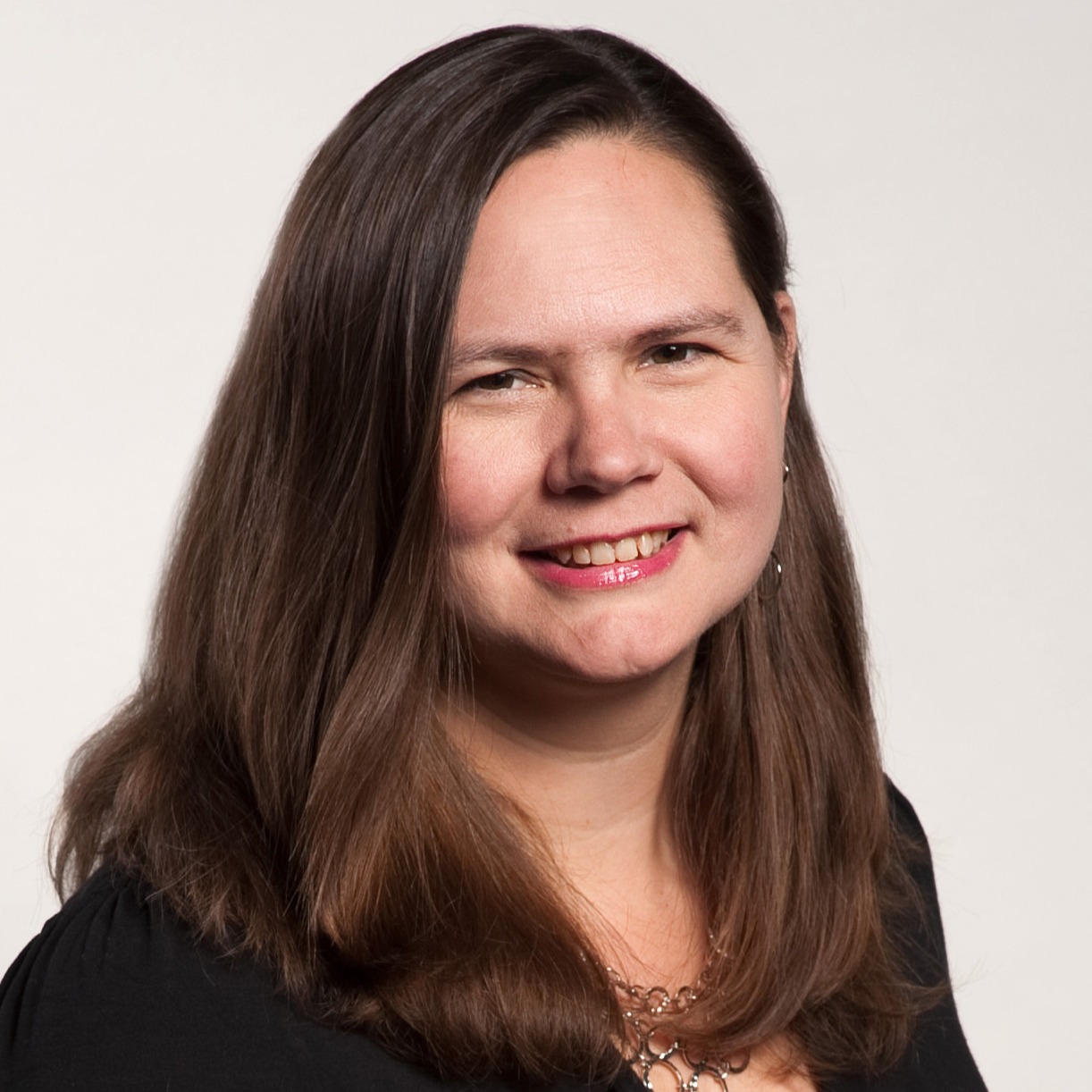
In this episode:
- Where do startups go wrong with implementing OKRs
- Can OKRs really scale for enterprise?
- What are pipelines and how do they change the way we think about product roadmaps?
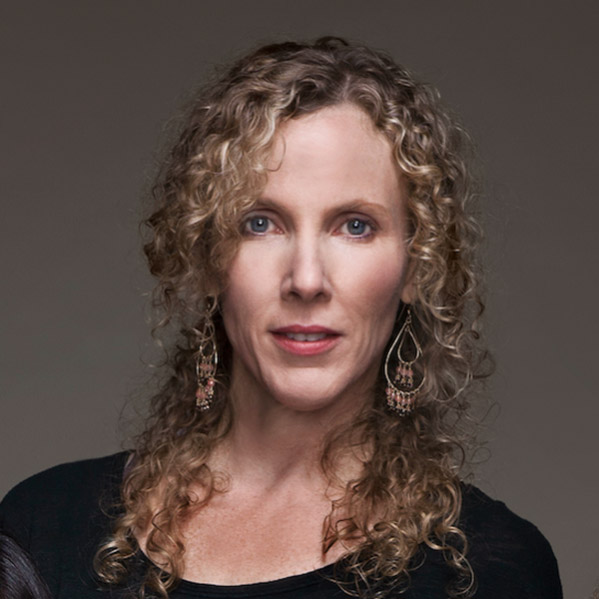
In this episode:
- From retail to product management
- Why relationship building is the number one required skill a product manager could have
- The value of having confidence with humility
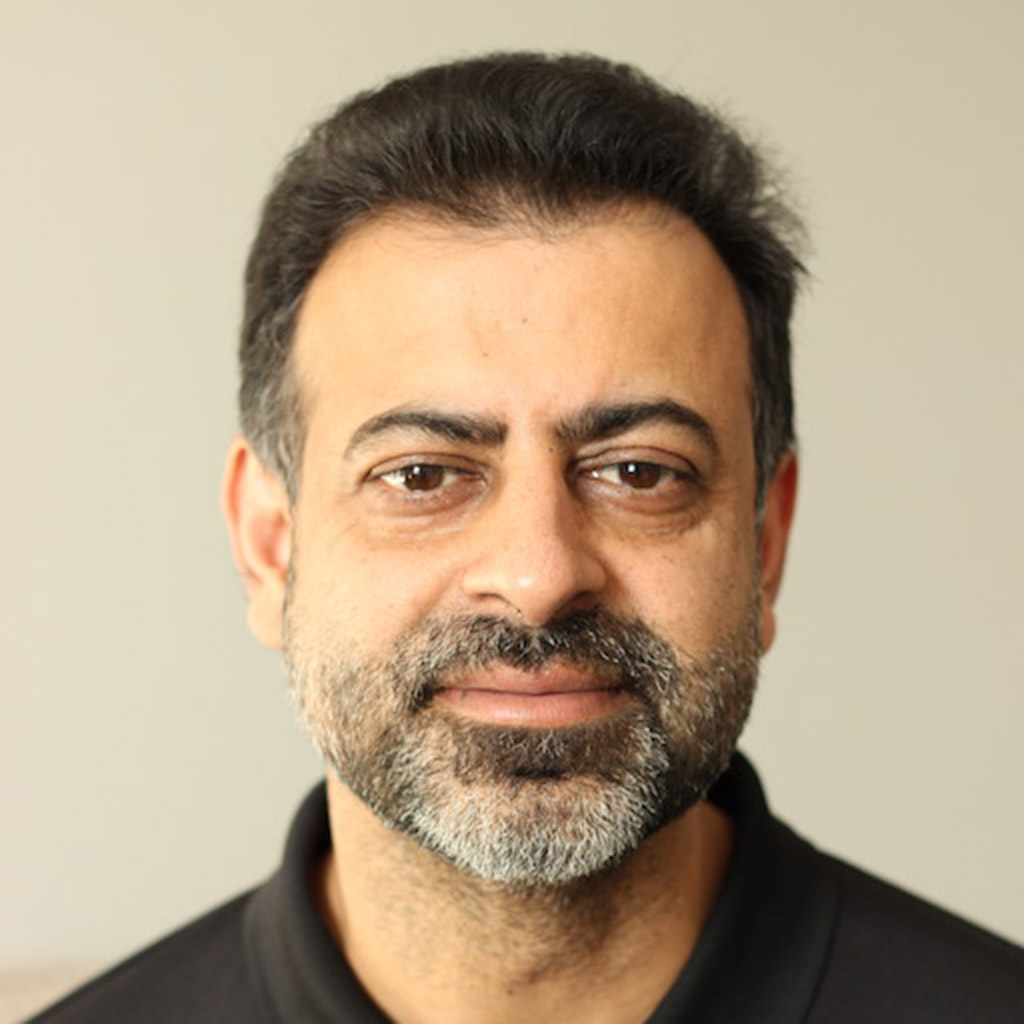
In this episode:
- Establishing a clear vision of your career path
- Using metrics to answer burning product questions
- What product managers can learn from biology

